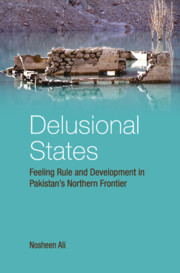Book contents
- Frontmatter
- Contents
- List of Maps and Figures
- Acknowledgements
- List of Abbreviations
- Introduction
- PART I Representation and Repression
- 1 Unimagined Communities in the Eco-body of the Nation
- 2 Loyalty, Suspicion, Sacrifice: Feeling and Force under Militarism
- PART II Education and the Politics of Faith
- PART III Saving Nature, Saving People
- Conclusion: The Great Media Game
- Bibliography
- Index
1 - Unimagined Communities in the Eco-body of the Nation
from PART I - Representation and Repression
Published online by Cambridge University Press: 05 June 2019
- Frontmatter
- Contents
- List of Maps and Figures
- Acknowledgements
- List of Abbreviations
- Introduction
- PART I Representation and Repression
- 1 Unimagined Communities in the Eco-body of the Nation
- 2 Loyalty, Suspicion, Sacrifice: Feeling and Force under Militarism
- PART II Education and the Politics of Faith
- PART III Saving Nature, Saving People
- Conclusion: The Great Media Game
- Bibliography
- Index
Summary
Within academic analyses of state-making, it has become axiomatic to argue that state power over a territory is achieved by implementing discursive techniques of legibility, uniformity, and transparency. Indeed, in James Scott's pioneering work Seeing Like a State (1998), the realization of the control of the state depends precisely on the visible seeing and objectification of spaces and subjects. Yet the case of Gilgit-Baltistan complicates this argument because the region has historically embodied an opaque, inconsistent, and distorted representation within Pakistan. This illegibility, however, cannot be interpreted as a sign of inadequate or non-existing state authority in some kind of non-state space.
To examine this paradox, this chapter explores how the border territory of Gilgit-Baltistan has been historically constructed within the representational practices of the Pakistani nation-state. The data under review concerns the ‘Northern Areas’, which defined the name, status, and representation of Gilgit-Baltistan from the 1947 partition till 2009. I have thus retained the region's previous name in this chapter, as I examine the multiple modes through which knowledge about the Northern Areas is regulated in sites where the nation-state is articulated and reproduced, such as textbooks, maps, and censuses. On the one hand, I show how the Northern Areas is constructed as the eco-body of the nation—a territory that is reduced to its physical environment, and epitomized as the quintessential, pictorial landscape of Pakistan. On the other hand, my analysis demonstrates how the presence of the region in discursive sites is constituted by the very absence of its political and social identity. This amounts to an effective unseeing that is produced through ambiguous, contradictory, and exclusionary modes of representation, which continue to dominate even after the name change to Gilgit-Baltistan. Such modes suggest that far from embodying legibility, liminal, suspended spaces like Gilgit-Baltistan occupy a structural political indeterminacy that may translate into their illegibility within national discourses. Moreover, this illegibility serves to invisibilize the region, its people, and their political marginalization from the imagination of ‘Pakistan’ and ‘Kashmir’, hence feeding into the process of rule and legitimation that has marked this region as politically unsettled in the first place.
- Type
- Chapter
- Information
- Delusional StatesFeeling Rule and Development in Pakistan'S Northern Frontier, pp. 31 - 76Publisher: Cambridge University PressPrint publication year: 2019

